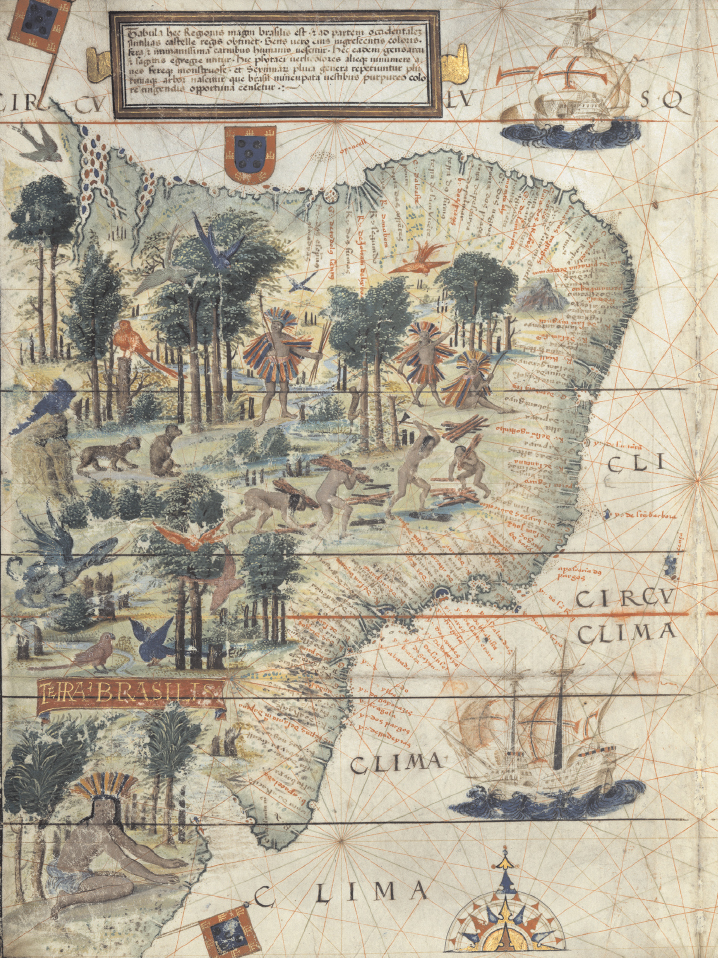America’s History: Printed Page 35
America: A Concise History: Printed Page 32
America’s History: Value Edition: Printed Page 32
Summary

Native American, European, and African societies developed independently over thousands of years before they experienced direct contacts with one another. In the Americas, residents of Mesoamerica and the Andes were fully sedentary (with individual ownership of land and intensive agriculture), but elsewhere societies were semisedentary (with central fields and villages that were occupied seasonally) or nonsedentary (hunter-gatherers). West and Central Africa also had a mix of sedentary, semisedentary, and nonsedentary settlements. Western Europe, by contrast, was predominantly sedentary. All three continents had a complex patchwork of political organization, from empires, to kingdoms and chiefdoms, to principalities, duchies, and ministates; everywhere, rulership was imbued with notions of spiritual power. Ruling classes relied on warfare, trade, and tribute (or taxes) to dominate those around them and accumulate precious goods that helped to set them apart from ordinary laborers, but they also bore responsibility for the well-being of their subjects and offered them various forms of protection.
As Portuguese and Castilian (later Spanish) seafarers pushed into the Atlantic, they set in motion a chain of events whose consequences they could scarcely imagine. From a coastal trade with Africa that was secondary to their efforts to reach the Indian Ocean, from the miscalculations of Columbus and the happy accident of Cabral, developed a pattern of transatlantic exploration, conquest, and exploitation that no one could have foretold or planned. In the tropical zones of the Caribbean and coastal Brazil, invading Europeans enslaved Native Americans and quickly drove them into extinction or exile. The demands of plantation agriculture soon led Europeans to import slaves from Africa, initiating a transatlantic trade that would destroy African lives on both sides of the ocean. And two of the greatest empires in the world — the Aztec and Incan empires — collapsed in response to unseen biological forces that acted in concert with small invading armies.